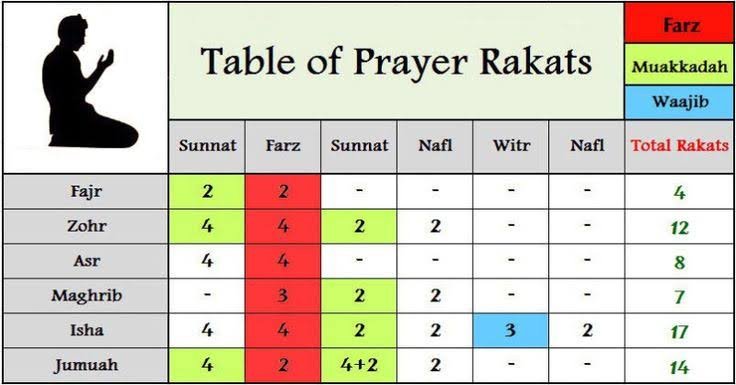Ajman, a vibrant emirate nestled along the coast of the United Arab Emirates, is known for its rich culture, stunning beaches, and modern architecture. However, the heart of Ajman lies in its deep-rooted traditions and spiritual practices, one of the most significant of which is the observance of prayer times. For Muslims in Ajman, Maghrib—the evening prayer—is a moment of tranquility, reflection, and connection to the divine.
Understanding Maghrib time in Ajman is crucial for those who seek to embrace this sacred moment in their daily lives. The timing of Maghrib is inextricably linked to the setting of the sun, making it a prayer that not only marks the end of the day but also signals a shift in the rhythm of life.
The Significance of Maghrib Prayer
Maghrib is the fourth of the five daily prayers performed by Muslims. It holds a special place in Islamic practices as it is the prayer offered just after sunset. This prayer is an opportunity for worshippers to reflect on the day’s experiences, express gratitude, and seek blessings for the evening ahead.

Maghrib offers a time for both individual devotion and communal unity. In Ajman, the call to prayer echoes across the city, reminding residents and visitors alike to pause and connect spiritually. Whether at home, at work, or on the beach, the Maghrib prayer brings a sense of peace, signaling a moment to turn inward and focus on faith. It’s a time for people to gather with family, share a meal, and be reminded of the importance of faith in their daily lives.
The prayer time itself is not just about the act of worship; it also serves to remind the faithful of the passage of time, urging them to stop and reflect on their actions during the day and express gratitude for their blessings. Many in Ajman see Maghrib as an opportunity for mindfulness, a moment of pause in a busy world.

The Timing of Maghrib in Ajman

Maghrib time in Ajman, like in the rest of the UAE, is based on the exact moment the sun sets. This time can vary slightly throughout the year, depending on the seasons, but typically falls between 5:30 PM and 6:30 PM. The exact timing shifts as the days grow longer or shorter, in keeping with the movement of the Earth in relation to the sun.
In Ajman, the timing of Maghrib is crucial for fulfilling religious obligations. As sunset marks the start of the prayer, residents and worshippers need to be precise to ensure they perform the prayer within the designated time window. Traditionally, many Muslims rely on local mosque announcements or the Adhan (call to prayer) to signal the start of Maghrib. However, with modern technology, many people turn to apps and websites that provide exact timings for Maghrib and other prayers, ensuring accuracy throughout the year.
As with all prayer times, observing Maghrib is about more than just the act of worship—it is an opportunity for Muslims in Ajman to align themselves with the natural world and its rhythms. The time of sunset often marks a natural break in the day, a moment to transition from the busyness of daily life into a quieter, more peaceful time of reflection.
The Spiritual Experience of Maghrib in Ajman
The experience of Maghrib in Ajman is unlike any other. The emirate’s coastal beauty enhances the serenity of the prayer time. As the sun sets over the Arabian Gulf, the sky fills with vibrant hues of orange, pink, and purple, creating a breathtaking backdrop for the call to prayer.
The sunset itself serves as a reminder of the cyclical nature of life—just as the sun sets each day, so too does each day provide opportunities for reflection and renewal. The act of praying at this time encourages worshippers to acknowledge the passage of time, recognize their blessings, and seek forgiveness for any shortcomings.
The connection between nature and spirituality is strongly felt during Maghrib in Ajman. As the sky darkens and the night begins to settle in, the air cools, and the city quiets down, creating the perfect environment for introspection. Many people in Ajman embrace this moment to pause, reflect on the day’s events, and express gratitude for the experiences of the day. This time of evening prayer is a reminder to stay present, acknowledge the beauty of the world, and maintain a sense of spiritual focus.
For Muslims in Ajman, Maghrib is also a time for togetherness. Many families come together to break their fast during Ramadan or share a meal after prayer. It’s a time for bonding, for exchanging thoughts about the day, and for recharging spiritually and emotionally. In a bustling city, Maghrib offers a rare moment to slow down, pause, and connect with loved ones.
Maghrib Time and Community in Ajman
Ajman, like the rest of the UAE, is a place where religion plays a central role in the daily lives of its people. The Maghrib prayer serves as a moment of spiritual pause, but it also strengthens the community. Mosques across Ajman become gathering points for worshippers during this sacred time.
The local mosques, large and small, play an important role in bringing the community together. Residents of Ajman often attend the mosque for Maghrib prayer, as it offers an opportunity to engage with neighbors, friends, and fellow worshippers. The social aspect of attending the mosque during this time cannot be understated. It is not only a spiritual practice but also a time to check in on others and foster a sense of connection within the community.
Even for those who may not attend the mosque, the call to prayer serves as a reminder of the importance of spirituality and community. The collective act of pausing for Maghrib creates a shared experience that binds the people of Ajman together, reinforcing their cultural and spiritual ties. It’s a time to celebrate both individuality and community, where each person contributes to the collective experience of worship.
The Role of Technology in Maghrib Observance
In today’s digital age, staying informed about Maghrib time has become easier than ever. While traditional means of tracking prayer times—such as the Adhan broadcast from mosques—remain in place, many residents of Ajman now rely on mobile apps and online tools to stay updated on precise prayer times.
These tools have made it more convenient for people to plan their day around the designated prayer times. Some apps even offer reminders, allowing worshippers to receive notifications just before the prayer begins, ensuring they never miss the sacred moment.
This integration of technology with traditional practices highlights how faith and modernity coexist seamlessly in Ajman. As the world becomes more fast-paced and interconnected, prayer times like Maghrib offer a pause, a break from the chaos, and a chance to connect to something larger than oneself.
Final Reflections on Maghrib Time in Ajman
Maghrib time in Ajman is more than just a prayer—it is a moment of serenity, reflection, and community. It serves as a powerful reminder of the cyclical nature of life and the importance of staying grounded in faith. For the people of Ajman, this sacred time is an opportunity to pause, reconnect with loved ones, and express gratitude for the blessings of the day. The beauty of the sunset, the call to prayer, and the quiet of the evening combine to create a spiritual experience that is both grounding and uplifting.
In the fast-paced world of modern life, Maghrib provides a much-needed opportunity to slow down, reflect, and realign with one’s values and beliefs. As the sun sets over Ajman, the city embraces this sacred moment, marking the end of the day with faith, gratitude, and a sense of peace.
Do follow Uae stories for more updates












